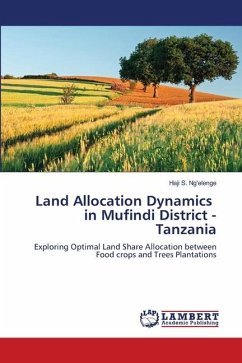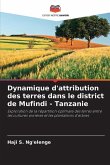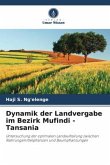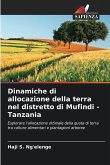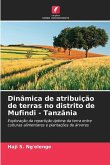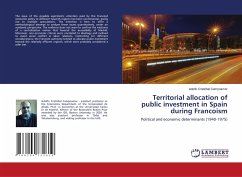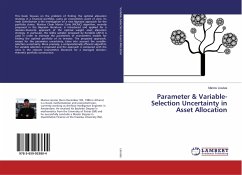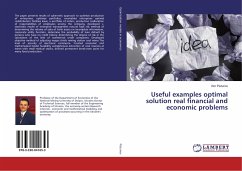This book underscores the importance of optimizing land use allocation by smallholder farmers in Mufindi district to maximize profit and ensure food security. The findings suggest that a balanced approach, integrating both food crop cultivation and tree plantation, can yield optimal results. Moreover, the study highlights the significance of various factors such as land size, awareness of land use policy, access to market information, and availability of labor in influencing land allocation decisions. Addressing these factors can enhance smallholder farmers' profitability and overall food security. The optimal land use strategy involves a multi-dimensional approach that integrates short-term food production with long-term income generation from timber trees.This approach not only maximizes profit but also improves household food security status over time. Therefore, policies and interventions aimed at supporting smallholder farmers should prioritize strategies that promote diversified and sustainable land use practices, thereby fostering both economic prosperity and food security at the household level.
Bitte wählen Sie Ihr Anliegen aus.
Rechnungen
Retourenschein anfordern
Bestellstatus
Storno

